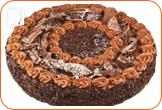
Chocolate, candy, processed foods, and soda are all things that most people consume on a regular basis that can be detrimental to overall health and create a cycle of sugar cravings. Most people living in the Western world eat too much sugar, which is nutritionally void and adds empty calories. The World Health Organization recommends that a person gets 5% of their calorie intake from added sugar, which is around 25 grams, or 6 teaspoons. The average person living in Europe or North America gets 7 - 25% of their calorie intake from added sugar.
Excessive Sugar Intake and Menopause

Many women are faced with the task of going through menopause while living with diabetes. Type 2 diabetes happens when a person's blood sugar level is chronically too high. Type 2 diabetes can cause a myriad of symptoms and medical problems, such as eye problems, damaged nerves, kidney damage, and high blood pressure.
Menopause can cause fluctuations in blood sugar levels and weight gain, which can aggravate diabetes or pre-diabetes. This means that it is important to be aware of your risk factors and take control of them by eating healthier and consuming less sugar.
Why Do People Crave Sugar in Particular?
Humans have evolved to crave sugar. Fruit made up a large portion of the diets of humans' evolutionary ancestors, which contains sugar. Sugar contains a lot of calories and is more likely to be converted into body fat that other food sources. This means human ancestors evolved to crave sugar, as it provided them with much-needed energy and the body fat it created helped them survive through periods of famine.

However, in current times, most people eat regularly, so there is no need to rely on fat stores. People also have a lot more access to sugar in the form of processed junk food, sodas, and baked goods. Although humans continue to crave sugar, it's important to minimize the amount of sugar consumed.
How Can I Reduce Sugar Cravings?

Added sugar often appears in foods that aren't seen as high in sugar. It can also be hard to keep track of exactly how much sugar you are consuming. Sugar intake can be reduced by:
Understanding labels. Sugar comes in many different forms, so it is labeled differently in food. Different names for sugar include corn sugar, high fructose corn syrup, and dextrose.
Cutting back on sugary drinks. Sodas are a main culprit for sugar intake. Alcoholic beverages can also be surprisingly high in sugar.
Eating less processed food. Microwaveable meals, chips, cookies, and frozen meals all contain added sugar, even if it is a savory food.
Fighting Sugar Cravings
Extra sugar can cause weight gain, obesity, type 2 diabetes, heart disease, and a myriad of other health conditions. It is important to eat a healthy diet and take care of your body no matter what stage of life you are in, including menopause. Click on the following link to read more about the other causes of weight gain during menopause.
Sources
- Mayo Clinic Staff. (2014). Diabetes and menopause: A twin challenge. Retrieved October 5, 2015, from http://www.mayoclinic.org/diseases-conditions/diabetes/in-depth/diabetes/art-20044312?pg=1
- National Health Service UK. (2014). Top sources of added sugar in our diet. Retrieved October 5, 2015, from http://www.nhs.uk/Livewell/Goodfood/Pages/Top-sources-of-added-sugar-in-our-diet.aspx
- Spector, D. (2014). An Evolutionary Explanation For Why We Crave Sugar. Retrieved October 5, 2015, from http://www.businessinsider.com/evolutionary-reason-we-love-sugar-2014-4
- World Health Organization. (2015). WHO calls on countries to reduce sugars intake among adults and children [Press release]. Retrieved on October 5, 2015, from http://www.who.int/mediacentre/news/releases/2015/sugar-guideline/en/



